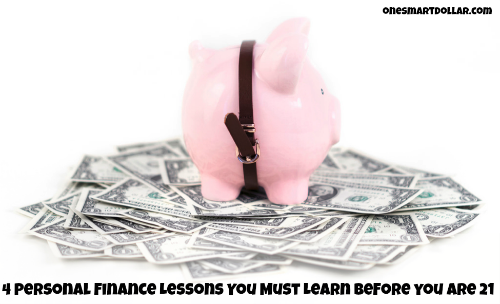
The Internet is awash with millions of web pages and blog posts devoted to personal finance and it seems that all the bases have already being covered. Yet, everyday you’ll see millions of people making personal finance mistakes that are sure to leave the “Martians” scratching their heads in response to the folly on earth. Nonetheless, you cannot afford to break some time-tested personal finance principles if you want to attain financial security.
There’s no magical solution for attaining financial stability, you have to work hard to build a life of financial freedom. This post is written just for you if you are ready to put your shoulder to the wheel and do the heavy lifting required to build a life of financial security.
Save first and spend later
You cannot have financial security unless you develop the habit of saving money regularly because savings will be the bedrock of your investment funds and savings will protect you from taking up loans for big-ticket items or for unforeseen expenses. Interestingly, many people know the importance of savings but they find it hard to save money because saving is the last thing they do after they receive their paychecks.
If you want to become a serious saver, you’ll need to make savings the first priority once you receive your paycheck. It doesn’t matter whether the entirety of the money in the paycheck is enough to offset outstanding bills or not. You can set up an online savings account into which you can set up automatic transfers from your checking account.
Use Credit Responsibly
The second important life lesson to learn before you are 25 is how to use credit responsibly. Some experts will tell you to avoid credit cards like the plague and not to buy anything that you can’t afford with cash out of your pocket. However, following that advice to the letter will drastically reduce the quality of your life experiences; hence, it is better to learn how to use credit responsibly so that credit doesn’t denigrate into debts.
You might want to start building your credit by getting a secured credit card so that you can learn the basics of staying under a credit limit and paying off your balance each month. More so, a line of credit loan can be a good choice for keeping the reins on you while you learn how to use and manage credit responsibly.
Pay your bills promptly by automatic reduction
You can’t escape bills unless you choose to live off the grid, which might require a high initial setup – plus it might not always be fun. That said; the third important lesson to learn on finances is that bills ought to be paid as soon as they are due. However, you might want to take a critical look at all the bills coming in and ensure that you actually need to keep all those services running.
Truth be told, you don’t really need a subscription to Cable TV if you have a Netflix or HBO account. More so, you don’t really need a separate subscription to stream movies if you have Amazon Prime. You can assign the same rationalization to your phone bills, transportation, and recreation.
If possible, try to pay your bills by automatic deduction and you won’t have to undergo the psychological torture of seeing stacks of bills from utility companies and the draining feel that accompanies the settlement of such bills.
Being frugal is not the same as being a cheapskate
A lesson on personal finance will not be complete without mentioning the need to be frugal. Yet, it has been observed that many people erroneously mistake being frugal for being a cheapskate or being a miser. Being frugal entails being smart with how you spend money and always ensuring that you get value from every dime spent – it is a different ballgame from pennywise pound-foolish activities of a cheapskate.
In being frugal, you might find it cheaper and more rewarding to eat at home than to splurge on eating expensive junk. A frugal person understands the wisdom in buying a $100 shoe that look great and can last a couple of years instead of buying a $30 shoe that needs to be replaced every six months. More so, a frugal person understands the different between reducing your expenses and reducing your standard of living. Honestly, it doesn’t make sense to sit in economy on a 12-hour flight to a business meeting if you can afford a business class ticket.
